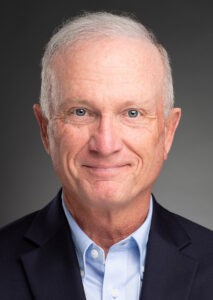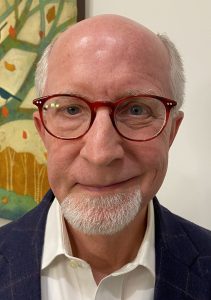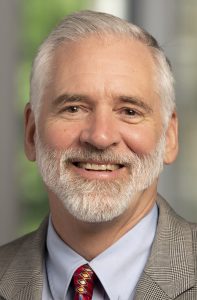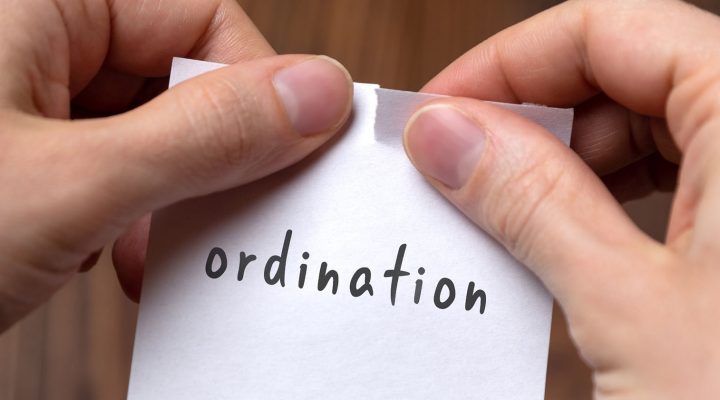Our motto here at BNG is to inspire you, dear readers, with change-making conversations. We’ve hit a nerve with one of those conversations this week, which tells me it is extremely important that we talk about this.
The “this” is a couple of columns that deal with ordination among both Methodists and Baptists. It started with an insightful column by David Ramsey about his journey through Duke Divinity School as a Baptist, then that was followed by a thoughtful column by Curtis Freeman and Marv Knox about the matter of how someone is un-ordained.
This conversation is important for several reasons, not least of which is most of us seldom ever talk about this. It’s also important because in our two previous columns, we may have talked past each other, which is typical of how nuanced conversations often go.
Quick recap
Here’s the quick setup: David Ramsey has written several well-read and well-liked opinion pieces for us. He was raised Baptist, was educated at a Baptist college and then in a Methodist seminary. Then he became a Baptist pastor — until he reached the tipping point where his doubts about the faith outweighed his belief.

David Ramsey
David has been nothing but honest with us — with you as readers — about this journey. In fact, he has been more transparent than most of us would be. And for that reason, I find his writing not only sharp but also insightful. It is important for us to hear diverse views, even ones that may be hard to hear.
Marv and Curtis are longtime contributors to BNG, and each brings a lengthy pedigree of work in Baptist ministries. Curtis works in theological education — at Duke, where David attended long before Curtis was there — and Marv spent most of his career as a Baptist journalist.
Together, these three friends of mine have raised for us important questions about ordination, what it means, how it’s done, where it’s done and how long it should last.
Even as someone who is ordained — first as a deacon and then as a minister — I’ve not thought much about the conditions of ordination or the length of ordination. Among Baptists, our default understanding is that ordination is for life. Thus the clever title of Marv and Curtis’ piece, “Once ordained, always ordained?”
How one becomes ordained differs greatly between Methodists and Baptists, as David explained in his article. The Methodists are much more methodical about it and live in a much more connected world than Baptists, who value autonomy as a cardinal virtue. In Baptist life, most often a local church ordains and then that ordination is recognized by other churches. As Marv and Curtis said, although they don’t necessarily like this, ministers are ordained by a particular church but then become free agents.
“As Marv and Curtis said, although they don’t necessarily like this, ministers are ordained by a particular church but then become free agents.”
Why and when to reconsider ordination?
That’s not the hard part of this conversation. The hard part is asking when and why those ordained as ministers no longer should claim that ordination. And there are two extremely different scenarios in which that most often arises.
One is in David’s case of no longer believing with certainty the essentials of the faith. He now considers himself agnostic — meaning in his words: “I simply don’t think we do or can know if a God exists. And if we don’t and can’t know if there is a God, then the language we use to speak about that God is utterly, inescapably and necessarily conjecture.”
David no longer considers himself a Baptist minister, but his ordination has not been formally revoked or given back for reasons I’ll explain in a moment.
Let me be clear here: David has not been involved in a scandalous moral failure or any of the other scandals that too often cause ministers to be kicked out. He was not kicked out; he chose to walk away because of theology, not misconduct.
Yet when we talk about the matter of being unordained, theology and morality occupy two ends of the same conversation. Yet they must not be conflated or even related.
Curtis and Marv thought they had made that clear in their column, but David does not think they made it clear.
His view: “The article absolutely, repeatedly and recklessly equates sexual immorality with atheism. One is a moral issue, the other is intellectual. I didn’t have an affair. I simply read and thought. A lot. … My thinking simply led me to a different place theologically than when I was ordained at the age of 24.”
And so I want to say here with all clarity: We do not want to equate theological divergence with sexual impropriety.

Marv Knox
Marv explains: “These illustrations — atheism and sexual abuse — appear in our column because David’s acknowledgement of his agnosticism prompted us to question the ordaining congregation’s responsibility, while the instance of sexual abuse is a much more prevalent application of the question. We continue to admire David for his transparency, candor and courage — as we stated previously. We do not believe his assertion that we think his agnosticism is equivalent to sexual predation.”
Apostasy, agnosticism and atheism
There are three big A words that get thrown around in theological circles that are relevant to our conversation here.
“Apostasy” is defined most simply as “the abandonment or renunciation of a religious or political belief.”
“Agnosticism” is the belief that God is unknowable and implies neither belief nor disbelief in the existence of God.
“Atheism” is the belief that there is no God.
David describes himself as agnostic — which puts him in the company of about 6% of the U.S. population and among the larger grouping known today as “nones” in demographic terms.
He also is not alone among ministers and former ministers, he says. And I believe he is right.
What about the piece of paper?
The bigger question, then, is what situations should cause an ordained minister to surrender ordained status or be stripped of it by the ordaining congregation. This process of unordaining someone appears to be much more prevalent in the Methodist tradition than in the Baptist tradition.
“This process of unordaining someone appears to be much more prevalent in the Methodist tradition than in the Baptist tradition.”
I was raised in the Baptist church, educated in Baptist schools and worked among Baptists for all my life. I can think of exactly one person I know whose license to ministry — not even an ordination — was revoked by a church. And that was for purely political reasons.
One of the key barriers to rescinding ordination in the Baptist tradition is that the ordaining church often loses touch with those they ordain as ministers. Not only do these congregations no longer have authority over the ordained person; they may not even know where they are. This is one of the dangers of the Baptist “free agent” system.
A second barrier is that Baptist ordination is an ethereal thing. I have a framed ordination certificate, and my ordaining church has a record in its minutes of the ordination. But there is no state or national registry of ordained Baptist clergy. There is no book from which to erase the name of one who steps aside or is defrocked.
David explains that while he has not surrendered his ordination certificate, he would do so “with alacrity if revoked. It has only symbolic, not utilitarian, value to me today.”
Relationships remain
But there’s more to this than a piece of paper, David believes.
“If the West Asheville Baptist Church revoked or disavowed my ordination, I would not disavow them. To disavow my ordination would be to disavow those people and that place that shaped me from childhood into young adulthood. The WABC was a literal and figurative sanctuary for me during my challenging adolescent years. That church wrapped its arms around me and my family when my father, a pillar in that congregation, died when I was 12. I felt safe and loved there. How could I ever disavow a people and place and experiences so important to my maturation?”
That church became “a surrogate parent to my childhood self,” he explains. “Who I’ve become as a man is in no small part attributable to the influence of the WABC during my childhood and adolescence. And whatever of Jesus remains in me, it was planted and watered by that church.”
And just as he has changed, so the church has changed, he believes.
“The church of my childhood is hardly the same today. Most of my ‘balcony people’ are dead. Today’s members have no clue who my family was or our small part in their historical narrative. So if my ordination were to be revoked by that church, it would be done by a group of strangers. Their revocation would be merely ceremonial and clinical, void of memory or emotion. I would, however, accept their revocation, although I have no idea where that ordination certificate is.”
What is the church’s responsibility?
Curtis and Marv remain intrigued by the question of what responsibility churches have to keep up with those they ordain.

Curtis Freeman
Duke Divinity School faculty
“Ordination, like other sacraments-ordinances, belongs to the church as a gift from God. It is a ‘mystery’ over which the church, and especially church leaders, are charged to be stewards,” Curtis explains. “Ordination does not belong to individuals. It is a gift God bestows through the laying on of hands. As a gift, ordination is not the possession of the receiver, but rather is bestowed by grace to be used ‘to equip the saints.’”
Further, he adds: “Ministry is not just a career. It’s a calling. More than that, it is a holy calling — not because ministers are holy, or even because they are given holy gifts to share with the people of God. It is a holy calling because the one who calls is holy. Surely deep waters and fiery trials await. Doubt and fear will arise. Yet ahead of us in the journey is the Holy One, who saves and calls with a holy calling, not according to our works, but according to God’s own purpose and grace.”
And in this act there is mystery, Curtis says.
“When congregations ordain pastors and deacons, there is prayer and laying on of hands, asking God to equip and empower them with the gifts for the ministry to which they have been called. The laying on of hands mysteriously connects us to the fire of the Holy Spirit in ways that cannot be fully understood or explained. Yet the gift is meant to be used. It can grow cold from neglect and disuse. Like coals, the gift must be kindled. God equips and consecrates those who have been called to ministry, but God’s gift must be exercised and nurtured so that warmth of the Spirit may continue to radiate the spirit of power, of love, and of self-discipline through these earthen vessels.”
Where’s the line?
For his part, David wonders where churches would draw the line to revoke ordination based on theology or belief.
“Where do you draw the apostate line? The virgin birth? They were a dime a dozen in ancient Near-Eastern literature. The resurrection? Why doesn’t Paul, writing some 25 years prior to the earliest Gospel, Mark, mention the empty tomb story? Or miracles? What about the inerrancy of Scripture, one of the primary litmus tests of the fundamentalists who took over the SBC convention in the 1980s?”
And on this point, he gets close to the practice of the neo-Calvinist churches in the Baptist tradition today, where church discipline is alive and active within very narrow boundaries. If there are Baptist churches today rescinding ordinations, it most likely would be among this group.
Most of the current conversation among Baptists, however, focuses on sexual abuse and not on apostasy. Again, to be clear one more time: These are not the same thing.
Among Southern Baptists, the sexual abuse conversation has been fueled by a massive investigation that rocked the denomination last summer. One of the most high-profile leaders accused in that report is Johnny Hunt, a former megachurch pastor and former executive vice president of the SBC’s North American Mission Board.
There has been no mention of his ordaining church — wherever that was — rescinding his ordination. Instead, Hunt assembled his own group of four male pastor friends to guide him through a “restoration” process. When those pastors recently announced Hunt had been cleared to return to ministry, even the president of the SBC was shocked, saying they had no standing to make such a declaration.
This highlights another curious truth about the Baptist ordination process: Those whose personal actions might cause their ordaining churches to want to rescind their ordination often are the most desirous not be defrocked, while those who have moved away from ministry because of theology rather than morality are less concerned.
In short, those who leave the faith may be more honest than those who betray the faith through their actions.
Related articles:
What a Baptist learned from the Methodists at Duke Divinity School and why I left both denominations behind | Opinion by David Ramsey
Once ordained, always ordained? | Opinion by Curtis W. Freeman and Marv Knox
SBC president blasts idea of Johnny Hunt’s ‘restoration’ to ministry
What have we learned about Matt Chandler’s sin and restoration? Not much | Analysis by Rick Pidcock


